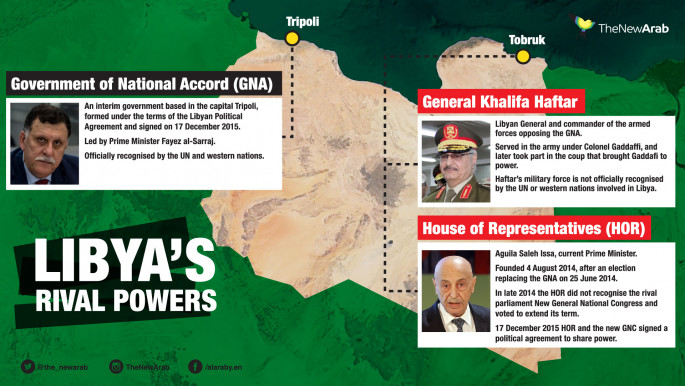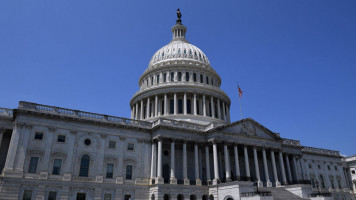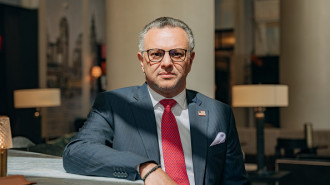Libya: Haftar to 'liberate' capital as militia rape-scandal reverberates
Speaking on Wednesday, Ahmed al-Mismari, a spokesperson for Haftar’s renegade Libyan National Army (LNA), said that “all military personnel must be ready” claiming that in the past “three months” in the Libyan capital “girls have been abducted and raped on a daily basis”.
A desecration of dignity
In comments to Asharq al-Awsat, Mismari added that advancing on Tripoli represented a “duty” for the LNA in order to “preserve the dignity of the Libyan citizen”.
“What’s happening in the capital Tripoli is a violation of human rights and a desecration of the citizen’s dignity,” said Mismari.
Last week a video emerged purportedly showing members of the al-Awashr Brigade taking turns to rape a woman as she pleads for mercy in front of her young daughter, sparking outrage.
A rival militia, the Tripoli Revolutionaries Brigade, who uploaded the video, said that the clip was found on the phone of an al-Awashr commander.
Outrage over the video led to protests in Tripoli on Friday December 9 and during the weekend.
The UN-backed Government of National Accord (GNA) has since said that it will make those responsible for the crime accountable, describing the perpetrators as “human wolves”.
But such statements have failed to assuage public anger both in Tripoli and outside the Libyan capital.
For example, in the city of Tarhouna, 65 km south east of Tripoli and the hometown of the victim abused in the video, outrage has lead local militias to threaten to attack Tripoli unless the GNA hand over the perpetrators.
 |
| Click to expand |
Haftar's support base
Following the toppling of Muammar Gaddafi in October 2011 in an uprising assisted by NATO, Libya descended into a civil war with rival governments established in Tripoli and Tobruk, and militias proliferating throughout the country.
Internal chaos also enabled the Islamic State group to take advantage and establish a foothold in the country.
Haftar, backs the Tobruk government which has received backing from neighbouring Egypt as well as Saudi Arabia and the United Arab Emirates and rejects the authority of the GNA.
Earlier this year, in July, Amnesty International reported on a “horrifying” culture of sexual violence in Libya, in particular targeting migrant and refugee communities.
Activists and academics have also claimed that within Libya’s civil conflict rape has been used as an “endemic war crime tool” to cause personal, familial and communal shame and anguish and create wedges and divides between different communities.
The United Nations Support Mission in Libya (UNSMIL) declined to comment on the developing situation when contacted by The New Arab.
Haftar – a former ally turned enemy of Gaddafi – returned to Libya from a two decade exile in the United States – in 2011 at the start of uprisings against the former dictator becoming a leading figure in makeshift rebel forces in the east of Libya.
His forces notably liberated Benghazi from Islamist militias in February and have also seized control of key oil ports in the country.
Although Haftar is popular in Benghazi for his central role in combating Islamist militias, and also in Tobruk, and has persuaded some army commanders and militia leaders to support his campaign, his association with Gaddafi counts against his popular appeal amongst many, notably in Tripoli.
Haftar has previously said he would not mobilise his forces towards the Libyan capital if it involved a fight. According to the Libya Herald Haftar has contact with some militias in Tripoli. However if his forces advance on the Libyan capital fractious militias within the capital are also expected to unite against him.

![Palestinians mourned the victims of an Israeli strike on Deir al-Balah [Getty]](/sites/default/files/styles/image_684x385/public/2024-11/GettyImages-2182362043.jpg?h=199d8c1f&itok=xSHZFbmc)


![The law could be enforced against teachers without prior notice [Getty]](/sites/default/files/styles/image_684x385/public/2178740715.jpeg?h=a5f2f23a&itok=hnqrCS4x)
 Follow the Middle East's top stories in English at The New Arab on Google News
Follow the Middle East's top stories in English at The New Arab on Google News


